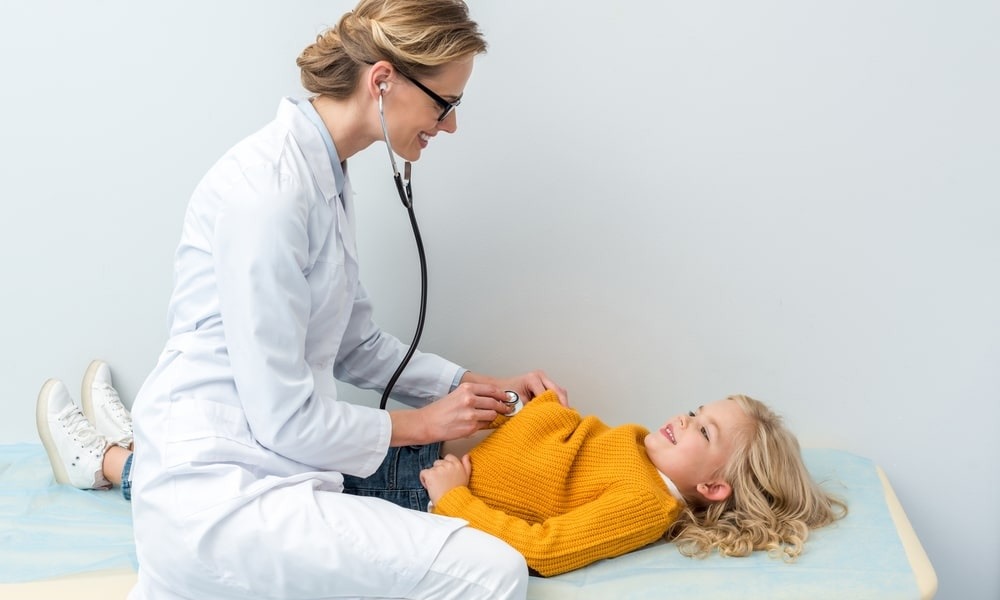Pediatric Health Check-Up: Ideal Frequency for Child Physical Exams
Ensuring your child’s optimal health and well-being is a priority for any parent or guardian. One essential aspect of maintaining their health is through regular physical examinations. Children also require periodic check-ups to monitor their growth, development, and overall health like adults. This blog will explore how often you need a physical, why they’re essential, and what to expect during these appointments.
Importance of Regular Physical Exams
Regular physical exams are crucial in monitoring a child’s growth and development, identifying potential health issues early on, and providing preventive care. These exams allow healthcare providers to track a child’s physical needs, such as height, weight, blood pressure, and developmental milestones. Additionally, they offer the opportunity to discuss concerns or questions regarding the child’s health, nutrition, behavior, and safety.
How Often Should Your Child Have a Physical Exam?
Regular physical exams are vital for monitoring your child’s health and development as they grow. The frequency of these exams can vary depending on factors such as age, overall health, and specific physical needs of a child. Here’s a detailed look at the recommended schedule for “how often should i get a physical” throughout your child’s life:
Infancy (Birth to 1 Year):
Infants undergo rapid growth and development during the first year of life, making frequent check-ups essential. Well-baby visits typically occur at one month, two months, four months, six months, nine months, and 12 months of age. These appointments focus on monitoring growth, assessing feeding patterns, and ensuring developmental milestones are met. Immunizations are also administered according to the recommended schedule to protect against infectious diseases.
Early Childhood (1 to 4 Years):
Toddlers and young children continue to require regular check-ups to track their growth and development. Annual well-child visits are recommended around the ages of 15 months, 18 months, two years, three years, and four years. During these appointments, healthcare providers assess growth parameters, evaluate speech and language skills, and screen for developmental delays or behavioral concerns. Vaccinations and booster shots are administered to maintain immunity against preventable diseases.
Middle Childhood (5 to 10 Years):
School-age children benefit from annual physical exams to monitor their health and well-being. These visits provide an opportunity to assess growth, evaluate vision and hearing, and screen for emerging health issues or risk factors. Healthcare providers may also discuss nutrition, exercise, and safety measures tailored to the child’s age and lifestyle. Regular physical activity and healthy habits are emphasized to promote optimal growth and development during this stage.
Adolescence (11 to 18 Years):
Adolescents undergo significant physical and emotional changes during puberty, necessitating regular health assessments. Annual physical exams are typically recommended for teenagers, although the frequency may vary based on the physical needs of a child and risk factors. These visits address puberty-related changes, mental health concerns, sexual health education, and substance abuse prevention. Healthcare providers may also discuss essential immunizations such as the HPV vaccine and meningococcal vaccine to protect against serious infections.
In addition to these scheduled well-child visits, parents should seek medical attention for their child if they experience any concerning symptoms or changes in health status between appointments. Early detection and intervention are vital to addressing health issues and promoting optimal outcomes for children of all ages.
Read More: Preparing for Surgery: What You Need to Know
What to Expect During a Physical Exam
Your child’s healthcare provider will thoroughly assess their health and well-being during a physical exam. It may include:
Initial Assessment:
Upon arrival at our Laguna Beach urgent care center or any other healthcare facility, medical history forms will be filled out, followed by height, weight, and possibly head circumference measurements.
Vital Signs Measurement:
Blood pressure, heart rate, respiratory rate, and temperature are checked to assess overall health.
Physical Examination:
Comprehensive examination of body systems for abnormalities, including eyes, ears, nose, throat, and developmental milestones.
Vision and Hearing Screening:
Vision and hearing are assessed using age-appropriate methods to detect impairments or abnormalities.
Discussion and Counseling:
Guidance was provided on health, development, behavior, nutrition, safety, and puberty-related changes.
Immunizations and Preventive Care:
Healthcare providers can administer recommended vaccinations to prevent infectious diseases and protect public health.
Follow-Up and Next Steps:
Summary of findings, address concerns, schedule follow-up appointments, and recommend additional testing or specialist referrals.
Securing a Healthy Future with Routine Child Physical Exams
Regular physical exams are essential for monitoring a child’s growth, development, and overall health from infancy through adolescence. Following the recommended schedule of well-child visits, parents can ensure that their child receives timely preventive care, early intervention for any health issues, and guidance on maintaining a healthy lifestyle. Remember to consult your child’s healthcare provider for personalized recommendations based on their needs and circumstances. Investing in your child’s health today can lay the foundation for a lifetime of well-being and success.
Surfside Urgent Care offers comprehensive physical exams for children tailored to each developmental stage. Our skilled healthcare providers conduct thorough assessments, administer vaccinations, and provide guidance on nutrition and safety. With convenient scheduling and personalized care, we ensure optimal health and well-being for every child in our community.



